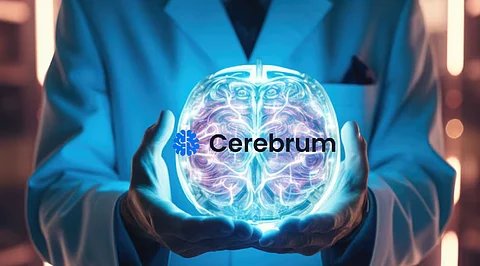

IQ testing in 2025 serves a different function than it did in the past. Instead of being a way to prove anything externally, many now see it as a tool for understanding their internal processes. IQ testing hasn’t disappeared - it’s just been redefined. And nowhere is that more obvious than in user-written Cerebrum IQ reviews.
Again and again, reviewers aren’t focused on showing off. They’re focused on making sense of what’s happening inside their own heads. That shift - from performance to reflection - is changing not just how people engage with tests, but what they expect to get out of them.
With endless productivity hacks, self-optimization trends, and digital distractions, many people are hitting a new kind of cognitive fatigue. It’s not that they feel “not smart” - it’s that they don’t know how their minds are currently functioning.
This is where CerebrumIQ comes in. Unlike traditional IQ tests that boil everything down to a single number, the platform offers a detailed breakdown: attention, memory, reasoning, pattern recognition. Users describe the experience not as competitive, but clarifying.
One reviewer wrote, “I didn’t care what the number was. I wanted to know why I can’t stay focused during meetings anymore.” Another shared, “I used to think I was just lazy. Turns out my short-term memory score was way lower than the rest - and that explained a lot.”
A striking trend across Cerebrum IQ review is the tone. These aren’t people bragging about a high score. They’re dissecting their results, applying them to life, and often using them as a pivot point. A teacher might reflect on why certain lesson styles exhaust them. A student might understand why group projects are harder than solo assignments. A remote worker might finally find language for their mental burnout.
In short: the reviews read more like therapy notes than test results.
This isn’t because the test is soft. It’s because it’s structured in a way that makes nuance visible. You don’t get ranked - you get mirrored.
It’s telling that very few Cerebrum IQ reviews mention traditional ideas of “genius.” Even users who score high tend to focus on the imbalance in their profile. One might say, “I had high reasoning but a terrible memory.” Another might note, “My pattern logic was strong, but attention was a disaster.”
This breakdown reframes what intelligence looks like. It’s no longer about a vertical climb. It’s a horizontal map.
And in that map, users find new routes. Some adjust how they plan their day. Others shift their career goals slightly to match cognitive strengths. A few talk about returning to their scores weeks or months later - reassessing, not chasing a number, but observing how external changes affect internal performance.
In traditional IQ environments, the test is a performance. You get one shot. You try to do your best under pressure. CerebrumIQ doesn’t take that route. Its test is timed, but quiet. You can take it on your own terms. The questions are challenging but not trick-based.
As one reviewer put it, “It felt like the first time I wasn’t being graded - I was being studied, and I got to read the report.”
This reframing allows users to approach the results with less ego and more curiosity. And that curiosity becomes the gateway to action. Someone with weak memory might start journaling. A person with low attention might stop trying to multitask. Another with strong logic might lean into systems design or strategy work.
Perhaps the most meaningful insight in modern Cerebrum IQ reviews is that intelligence is no longer being treated as status - it’s being treated as a system. One that can be mapped, maintained, and adapted.
This shift parallels other cultural movements: away from perfection and toward self-awareness, away from comparison and toward calibration. The best reviews don’t ask, “Am I smart?” They ask, “What kind of thinker am I?” and “How do I protect or use that in daily life?”
In that sense, CerebrumIQ has become more like a mirror than a scoreboard. And mirrors, when used with care, help people fix posture - not judge appearance.
The timing of this cultural shift isn’t accidental. Post-pandemic mental fatigue, changing work models, and rising neurodivergence awareness have all made people more attuned to how they think, not just what they know.
Cerebrum IQ reviews reflect this shift. They’re full of phrases like:
“It made me rethink how I structure my week.”
“I finally understood why I hit a wall at 3 p.m.”
“My scores didn’t shock me, but they explained me.”
These aren’t declarations of superiority. They’re strategies for survival.
Because CerebrumIQ is built as a diagnostic snapshot rather than a diagnostic endpoint, it invites return. While retesting isn’t currently available on the same account, many users mention revisiting their original results over time - especially during burnout recovery, job shifts, or health changes.
In the future, it’s possible that the platform may develop tools for tracking shifts in cognition over time. But even now, the existing feedback is enough to prompt new decisions.
CerebrumIQ reviews don’t look like self-congratulations. They look like self-assessments. Users aren’t sharing scores to boast. They’re explaining what they learned, how it changed their habits, and what they see differently now.
This change reflects a broader shift in how people relate to cognitive feedback - less as a form of competition, more as a guide for self-directed adaptation. It’s not about being the smartest in the room. It’s about knowing what’s going on in your own head - and what to do with that knowledge.
For users engaging seriously with their mental patterns, that reflective mindset may prove more impactful than any isolated score.
